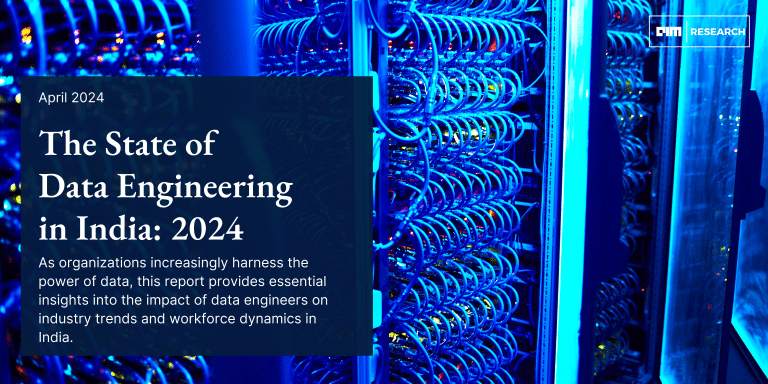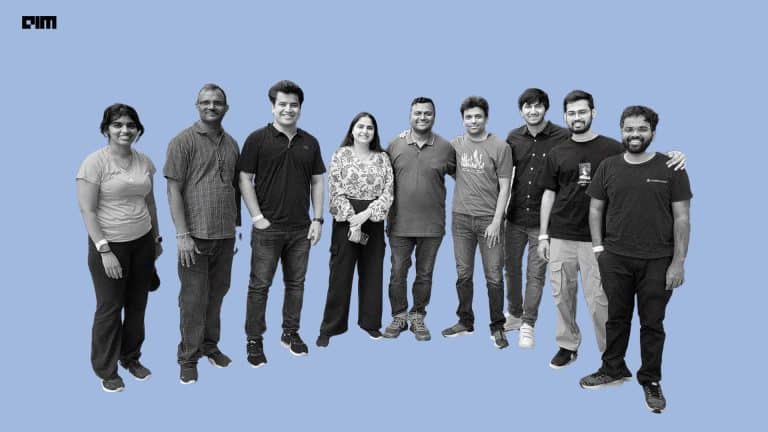While we agree that data science has become a catchy term for young enthusiasts, it is of utmost importance that they understand the domain and create a solid underlying foundation before actually approaching the field. According to experts, one of the biggest challenges facing a data science beginner isn’t technical at all — it is the difficulty of staying motivated. With the overflowing data science bandwagon, there are still many individuals that do not fully understand what data science is and what data scientists do. And, that led to the proliferation of misconceptions and myths among young data science enthusiasts.
This article is an attempt to take down some of the misconnections and myths related to the data science field and would try to provide a basic understanding of what data scientists do, and what it takes to be one of them.
Necessary to have a computer science or mathematics or programming background
Apart from thinking that it is mandatory to have a PhD in order to become a data science, people also believe that it is necessary to have a background in computer science or programming to pursue a career in data science. Usually, most people in data science industry, you would come across, will have an engineering, computer science or a programming background; however it has been proven that one with no relation with maths, computer science, or programming can also become a data scientist — the only thing required is the interest and the motivation to learn something new. Data science is a nuanced field, and therefore certain criteria are available in people with math background. Still, with enthusiasm, one can learn every concept of data science from scratch even without a little knowledge of math and programming.
It’s all about the tools that make you a data scientist
Although learning tools like Python and R are essential to work in the data science field, it is widely believed that mastering data science is only about learning tools and their application. People think that one can be an expert data scientist if they can write code using existing libraries. This is far from the truth. In reality, data science is a combination of many skills with programming being the core clubbed with other technical and non-technical soft skills.
Apart from learning how a certain technique works, it is also important for data scientists to adopt problem-solving skills, structured thinking and communication skills. Organisations are looking for people who know more than just the knowledge of a tool — they are looking for a combination of mathematical, programming and business skills that can be used for the whole business.
There is no difference between a data scientist, data engineer, and a business analyst
This has to be the most common misconception among people, and also the most asked query. People tend to get confused with such jargonistic designations of a data scientist, a data engineer and a business analyst, but, in the industry, each role has its own uniqueness, and each role is vital for specific development of the organisation.
A data scientist is someone whose work is to extract value out of data. That person collects data from various sources and then analyses it for decisions-making with the help of ML models. They are also known as data managers and statisticians. On the other hand, a data engineer is a database administrator or a data architect who uses computer science to handle big data. They mainly focus on managing databases and creating pipelines for ML projects. Thirdly, a business analyst typically helps employees of the company to understand specific queries related to data and also help them implement the same in their work while ensuring compliance.
Collecting data is easy; data scientists should focus on building models
It is impossible to gaze at the amazing rate data is being generated nowadays — which is almost 2.5 quintillion bytes per day. Therefore collecting and cleaning the right data is extremely important for businesses, and is also one of the toughest tasks of the system. Businesses need to build a proper pipeline for this process in order to maintain the integrity of the data. And that’s where data engineer comes into play.
Organisations should underestimate the importance of data collection step; in fact, it is imperative to get a desired final result. There are too many sources available to collect data from, and alongside, it is also essential to understand the format and the cost related to it. The role of a data architect and a data manager has taken a new level of importance in organisations for a business to run smoothly.
There’s a shortage of data scientists for Indian organisations
According to reports from 2013, when data science was at its infancy, there was a huge scarcity of data scientists in organisations; however, in 2016, the same number decreases a little due to the rise in online courses and training institutes in the country to train data scientists. Fast forward to 2019-20 — there are educational institutes that are rising like mushrooms with thousands of young data scientists graduating every year.
Earlier it was important for people to have a good college or an institution background, but currently, there are online programs, workshops, tutorials, boot camps and many such other options for young enthusiasts to grasp data science knowledge and pursue a career. Similarly, with almost every company running on data, the need for data scientists in our country has also increased drastically. Of course, it still might be challenging to find highly trained data scientists, but with several potential candidates coming out in the market, it will get easier for businesses to search for the right talent.
Data science is still a male-dominated field.
This can be considered a myth partly. Historically, it has been seen that there are less female students pushed to the computer science or engineering field, and therefore the majority of the data scientists today are male. But, things are changing drastically with more and more women coders and developers coming up. Also, the field of data science is comparatively newer, and therefore it is taking more time for women to participate and show their value.
Earlier there was a widespread misconception that fields like maths and computers are exclusively for males, as they have a better aptitude for it. Still, with more women, data scientists coming up having a STEM background, the concept is changing. Also, many organisations are doing their part to empower more women in data science. The Rising is one such event for a women data scientist that celebrates women innovators in data science, analytics and AI fields. This conference serves as a forum for exchanging ideas to build a better platform for women in technology.
Only large organisations need data scientists
Data has been termed as the new oil for businesses to run. And, every company, whether it be big or small, can use data and analytics to enhance their business operations. And if a company is using data analytics for their business, that company would require a data analyst or a data scientist. In fact, for smaller organisations, data analytics can be of enormous benefit to run business and to find out how your data can be used.
Usually, it gets a little easier for a large organisation to build a formal data science team because of their financial resources, however in this domain vast resources doesn’t guarantee success, organisations need to have smart and correct resources for it to work. Therefore organisations of any size can hire a data scientist, can apply data science in their businesses and can succeed in their data science activities if implemented correctly.
The domain of data science is nothing more than a bubble
Given the extreme hype of data science, it isn’t very surprising that people believe it to be a bubble or a buzzword or even a fad. But, let’s clear a fact here — data science isn’t a fad or a bubble that’s going to burst. Data science is a process, which comes from the amalgamation of statistics and math knowledge and problem-solving skills. The concept of prediction has been there since centuries; however, it was done manually.
Currently, every business is trying to use its data for forecasting and prediction in order to improve their business operation. Earlier people used science and statistics actually to predict problems, but in the recent era, data scientists are using a massive amount of data, robust computing and predefined models to predict the problem and find the solution. With the help data that is plentiful, easily duplicated, easy to share, and relatively easy to process, organisations can now understand more about their customers, markets, and processes. Such information, coupled with today’s powerful programming, gives data scientists a substantial control over how data is manipulated, cleansed, preprocessed, analysed, and visualised.
Artificial intelligence will oust data scientists
This could be the most absurd misconception attached to data science. Although machines with artificial intelligence are on the rise, a person with the right qualification and one who understands the machine is always required to direct the machine for the desired results. With automation in the air, more and more sophisticated algorithms are being built; however, we will still need manual intervention which has sound judgment and domain expertise.
The creativity involved in data science cannot be related to artificial intelligence. Whether it is about developing a model for facial recognition or finding a solution to detect financial fraudulence, intelligence machines will require expert supervision to run effectively. Data scientists are here to stay, and the demand is increasing daily and will continue to grow in the foreseeable future. Young enthusiasts only need to equip themselves with the right skills, which are in demand to enhance their career graph.



















































































